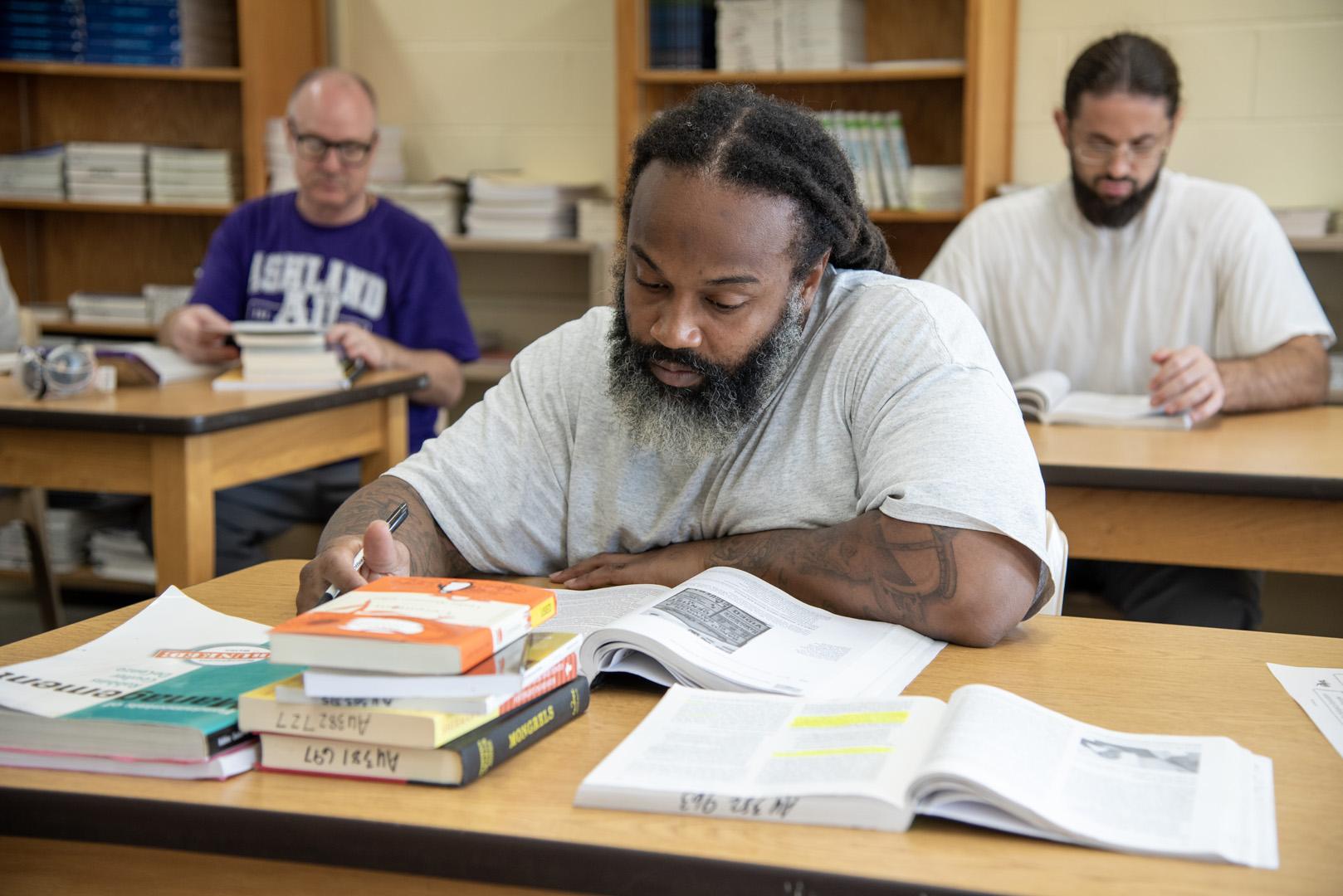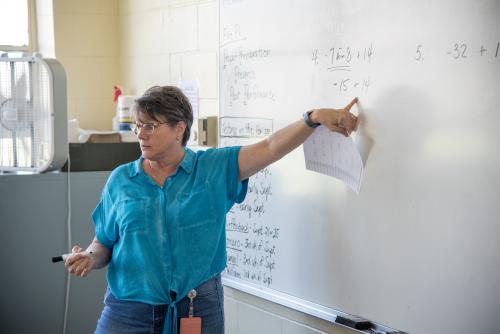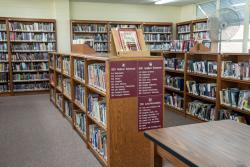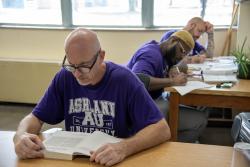
We educate Missourians and prepare them for the workforce.
The Department of Corrections Division of Offender Rehabilitative Services provides education services in classroom settings. Adult education serves offender students whose skill levels range from early elementary to high school in the areas of reading, math, language, science and social studies. Correctional education provides small classes, enabling each teacher to tailor lessons to the offender students at appropriate levels. The education program follows the guidelines set by the Department of Elementary and Secondary Education, using the Test of Adult Basic Education as the official assessment tool and the HiSET as the official high school equivalency test.

Facility corrections managers, acting as school principals, are responsible for the day-to-day operations and administrative functions of the schools. Certified teachers provide the classroom instruction. Offenders who have high school diplomas or equivalency certificates work as tutors in the classrooms, offering support and mentoring for peers.
Adult Basic Education (ABE)
Adult basic education (ABE) is an integral part of the rehabilitative process. Offenders who have not yet earned high school diplomas or equivalency certificates upon incarceration are required by statute to participate in adult basic education classes.
Missouri adult education and literacy programs have been ranked No. 1 in student advancement by the U.S. Department of Education’s Office of Career, Technical and Adult Education National Reporting System.
Special Education
The Missouri Department of Corrections ensures that offenders younger than 22 who have learning disabilities are given the opportunity to participate in appropriate educational services, in accordance with the Individuals with Disabilities Education Act. Each special education teacher provides appropriate education based on the needs of the offender student, as outlined in each individualized education program (IEP). Services include accommodations and modifications in classroom instruction and test taking to help students achieve academic success.
Title I
Any student younger than 22 who has not completed high school and does not have a high school equivalency certificate may be enrolled in a Title I class for one hour per day. Students who are diagnosed with learning disabilities under the Individuals with Disabilities Education Act are served by Special Education and also enrolled in Title I. The Title I teacher assists in subject areas in which the student is working below his or her educational level. Title I students benefit from one-on-one additional help through the use of supplementary materials.
Library Services
Correctional libraries support the department’s mission by providing educational, informational, literary and legal materials for offenders. Our library services create a positive environment and encourage life-long library use. Correctional libraries foster the well-being and positive adjustment of offenders. Each library houses a general public library collection and provides access to legal materials.
Higher Education
The Department of Corrections has partnerships with colleges and universities including Washington University, St. Louis University, Rockhurst University, State Technical College of Missouri, Hannibal-LaGrange University and Ashland University. Through these partnerships, offenders and staff have the opportunity to take college courses and earn credits toward degrees, even completing associate's degree and bachelor's degree programs while incarcerated.


